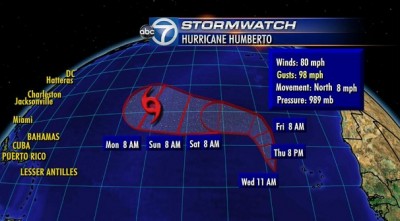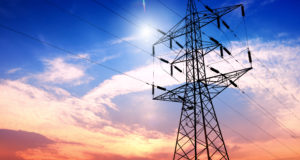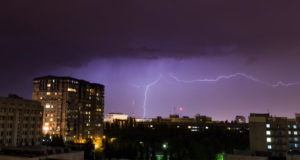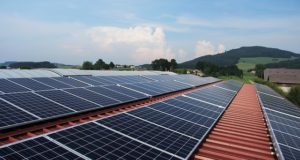|
Listen To The Article
|

image credit wjla.com
Humberto is the first Atlantic hurricane of 2013 and another reminder one of the greatest threats to the power grid – Mother Nature.
Late Monday evening the US National Hurricane Center clocked Humberto’s winds at 60 mph, and they were expected to reach 75 mph on Friday. It officially became a hurricane on Wednesday. As of now, Humberto is swirling in the middle of the Atlantic.
AccuWeather.com’s Kristen Rodman wrote a story for the weather ssite noting that severe weather regularly poses a danger to America’s delivery of electricity, which she dubbed the “archaic US power grid.”
“Heat waves, blizzards, hurricanes and other severe weather events have already shown the numerous vulnerabilities of the U.S. power grid system by inducing blackouts and massive power outages throughout the country,” Rodman wrote. “As the system grows older and severe weather seemingly occurs more often, concerns regarding the system’s flaws are mounting.
As previously reported by Off The Grid News, the federal government is conducting a first-of-its-kind power grid drill in November to simulate what it would be like to not have power for a significant time. Thousands of utility workers, FBI agents, anti-terrorism experts, governmental agencies, and more than 150 private businesses are involved.
“As the leading cause of power outages in the US,” AccuWeather.com reported, “severe weather has caused more than 675 power outages between 2003 and 2012, costing the US approximately $18 billion to $33 billion per year, according to a report by the President’s Council of Economic Advisers and the US Department of Energy’s Office of Electricity Delivery and Energy Reliability. The construction of the current grid began in the late 1880s and while portions of the grid have been updated and changed over time, more than 70 percent of the grid’s transmission lines and transformers are at least 25 years old.”
Harness the power of the sun when the power goes out…
Massoud Amin, electrical and computer engineering professor at the University of Minnesota, compared the functioning process of the power grid to the human heart. When a light is turned on inside a home, “millions of electrons” travel all at one at the speed of light to usher electricity into the room. These same electrons traveled from one of more than 150,000 generators to one of the four major subregions in America – taking the “path of least resistance” over the power lines with the least activity at the moment the light switch was flipped.
The electrons must remain in balance as the flow of electricity is transferred around the United States.
“However, when hundreds of people go to turn on the light at the same time, the system must work harder to deliver more electricity immediately, without delay,” AccuWeather.com said. “This process can be compared to the way the human body pumps blood faster through veins and arteries to the heart in a stressful situation like exercise, versus circulation to the heart when the body is at rest’
Said Massoud Amin, “Think of a massive scale system that has to work nearly perfectly.” He believes the grid “must become stronger, more secure and more resilient.”
When Superstorm Sandy rocked the New Jersey coast in 2012, millions of largely unprepared people were without power for weeks. That late fall hurricane was a significant contributor to the $27 billion to $52 billion that power outages cost the country during any given year, according to a White House report.
According to National Oceanic and Atmospheric Administration (NOAA) statistics, there have been 645 hurricanes between the months of September and November since 1851. In comparison, only 321 hurricanes formed from June through August during the same time period.
As reported by Off The Grid News earlier this year, the power grid achieved a D+ rating by the American Society of Civil Engineers. The American Society of Civil Engineers power grid grade card rating means the energy infrastructure is in “poor to fair condition and mostly below standard, with many elements approaching the end of their service life.” The report card said a “large portion of the system exhibits significant deterioration” with a “strong risk of failure.”
Visit NBCNews.com for breaking news, world news, and news about the economy
 Off The Grid News Better Ideas For Off The Grid Living
Off The Grid News Better Ideas For Off The Grid Living




